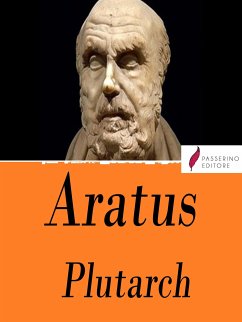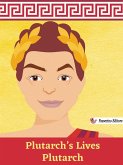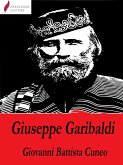Aratus (c. 315 BC/310 BC – 240) was a Greek didactic poet. His major extant work is his hexameter poem Phenomena (Ancient Greek: Φαινόμενα, Phainómena, "Appearances"; Latin: Phaenomena), the first half of which is a verse setting of a lost work of the same name by Eudoxus of Cnidus. It describes the constellations and other celestial phenomena. The second half is called the Diosemeia (Διοσημεῖα "Forecasts"), and is chiefly about weather lore. Although Aratus was somewhat ignorant of Greek astronomy, his poem was very popular in the Greek and Roman world, as is proved by the large number of commentaries and Latin translations, some of which survive.
Plutarch (AD 46–after 119) was a Greek Middle Platonist philosopher, biographer, essayist, and priest at the Temple of Apollo. He is known primarily for his Parallel Lives and Moralia. Upon becoming a Roman citizen, he was named Lucius Mestrius Plutarchus (Λούκιος Μέστριος Πλούταρχος).
Plutarch (AD 46–after 119) was a Greek Middle Platonist philosopher, biographer, essayist, and priest at the Temple of Apollo. He is known primarily for his Parallel Lives and Moralia. Upon becoming a Roman citizen, he was named Lucius Mestrius Plutarchus (Λούκιος Μέστριος Πλούταρχος).









